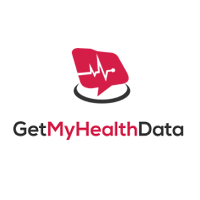 The GetMyHealthData (@GetMyHealthData)initiative announced commitments from leading health organizations to take concrete steps over the next year to make it easier for patients and families to access and use their electronic health information.
The GetMyHealthData (@GetMyHealthData)initiative announced commitments from leading health organizations to take concrete steps over the next year to make it easier for patients and families to access and use their electronic health information.
GetMyHealthData, a project of the National Partnership for Women & Families (@NPWF), is a collaborative effort of leading consumer organizations, health care experts, former policymakers and technology organizations working to enhance consumer access to digital health information. Launched one year ago, the initiative has catalogued challenges that patients and caregivers face getting their health data, including limited awareness that they have a right to access their health information electronically, lack of understanding about how to send health data to consumer health apps and a health care culture that is often unresponsive and suspicious of data sharing with consumers. Findings from the campaign’s first year, including details on common challenges and troubleshooting tools, are available here.
“At the end of the day, our theory that unleashing consumer demand would unlock health data was wrong. Consumer demand is there. But requesting health data is more costly, time consuming and difficult than previously known,” said Christine Bechtel, campaign coordinator and advisor to the National Partnership for Women & Families. “Now we have an incredible opportunity to modernize the process so data access becomes easy, automated and routine. We’re excited to announce that leading organizations have committed to innovative strategies that will make this possible.”
“At Aledade, we are committed to making sure our physician practices get it right and make data access the default. We will assess the impact of this strategy on health care utilization and cost through pilots with practices in order to strengthen the business case for others to follow our lead,” said Farzad Mostashari, Aledade co-founder and CEO and former national coordinator for health information technology.
“We are looking forward to working with our members to develop a model release of information form that patients can use to request their health information from any health care provider,” said American Health Information Management Association CEO Lynne Thomas Gordon. “The model form will use plain language so patients can understand all their options and get the data they need delivered to them in the most convenient and effective way.”
“We’re eager to further our ongoing partnership with GetMyHealthData through the launch of a new ecosystem of Flips to capture what works for clinicians and patients to harness the power of digital health information and co-create the best path to transmit data to patient-selected mobile apps,” said Whitney Zatzkin, Flip the Clinic director.
“GetMyHealthData has shined a spotlight on the challenges patients and family caregivers face in leveraging health information technology to support engagement in their health and care. The National Partnership looks forward to continuing to collect and share stories about the challenges and successes individuals face in getting their health data,” said National Partnership President Debra L. Ness. “Most importantly, we look forward to identifying effective solutions that will enhance both patient and clinician appreciation of the benefits of sharing health information to improve care and enable patients to be more involved in their care.”
“The work of these exemplars will bring us closer to the day when getting health data is as easy as online banking. Now it’s time for other organizations to assess their own practices, address gaps and share their successes with GetMyHealthData,” said Bechtel.
Over the next year, these organizations will share outcomes of their work and lessons learned at GetMyHealthData.org.
About the GetMyHealthData Campaign
Get My Health Data is a collaborative effort among leading consumer organizations, health care experts, former policy makers and technology organizations working to enhance consumer access to digital health information. The initiative is coordinated by the National Partnership for Women & Families. Founders include Amida Technology Solutions; Code for America; Genetic Alliance; Health Data Consortium; Farzad Mostashari, MD, ScM; and Aneesh Chopra, former Chief Technology Officer of the United States.
About Aledade
Founded in 2014, Aledade offers a new model of primary care that puts physicians back where they should be: quarterbacking their patients’ health care. Aledade partners with primary care physicians to build and lead Accountable Care Organizations (ACOs) that allow these doctors to stay independent, practice medicine like they’ve always wanted to, and thrive financially by keeping people healthy. Aledade provides data analytics and user-friendly technology to help doctors provide more seamless care, unparalleled regulatory expertise, the best practices shared by a national network of hundreds of doctors, and face-to-face practice transformation support.
About the American Health Information Management Association
The American Health Information Management Association (AHIMA) is the premier association of health information management (HIM) professionals worldwide. Serving 52 affiliated component state associations and more than 101,000 health information professionals, it is recognized as the leading source of “HIM knowledge,” a respected authority for rigorous professional education and training. Founded in 1928 to improve health record quality, AHIMA has played a leadership role in the effective management of health data and medical records needed to deliver quality healthcare to the public.
About Flip the Clinic
Flip the Clinic is an open experiment to transform the patient-clinician experience. It is where patients and health practitioners improve medical care, together, in an effort to challenge the traditional definition of a clinic.
About the National Partnership for Women & Families
The National Partnership for Women & Families is a nonprofit, nonpartisan advocacy group dedicated to promoting fairness in the workplace, access to quality health care and policies that help women and men meet the dual demands of work and family.
